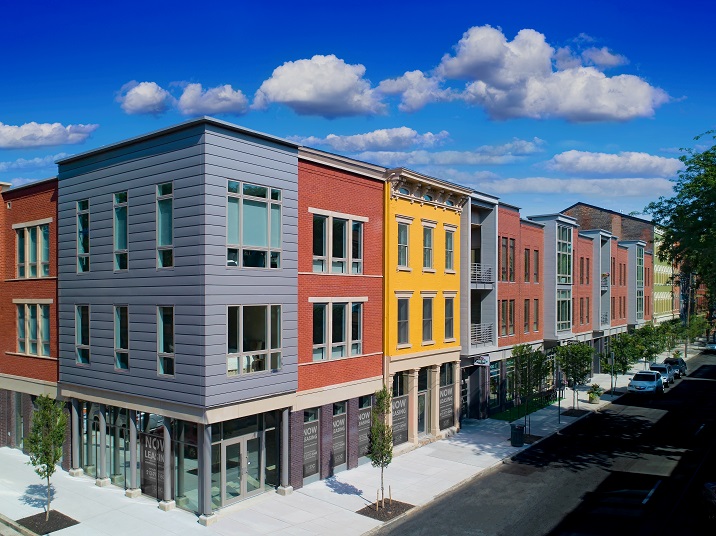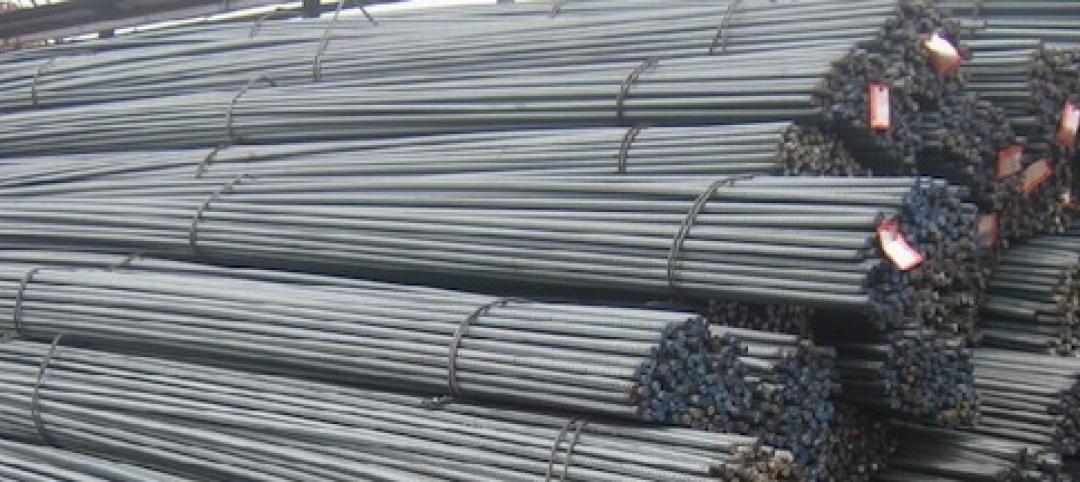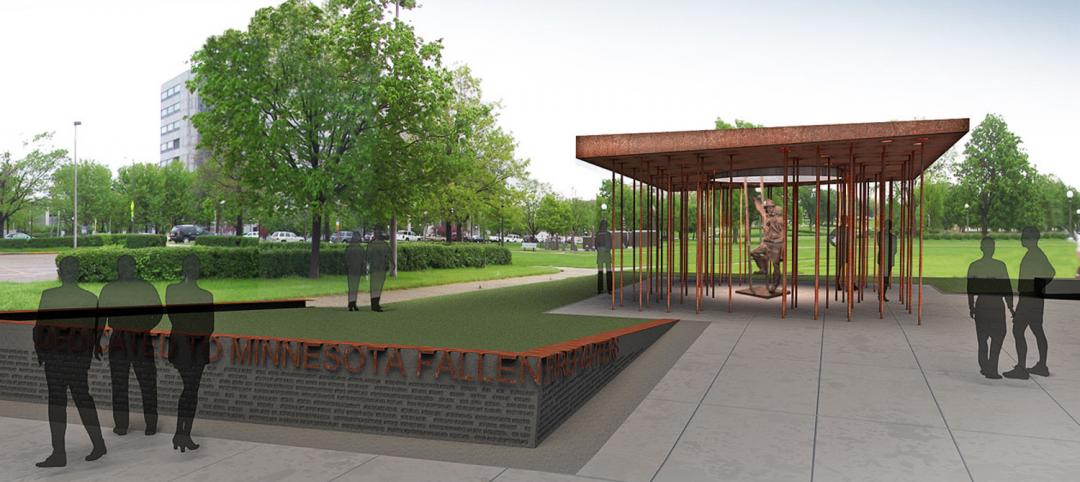Cincinnati, St. Louis and Milwaukee often are referred to collectively as “the Great German Triangle,” because of the waves of German immigrants who settled in those three cities during the late 1800s. In Cincinnati, the Over-the-Rhine neighborhood (“OTR” to locals) became the hub of German culture and home to a number of local breweries, before falling into decline. Over the past decade or so, OTR has come into its own, again, as a hip entertainment zone, complete with craft breweries that are reinvigorating the area’s century-plus traditions. A new mixed-use housing and retail development there draws on the local masonry architecture – and adds a contemporary twist with metal wall panels – as part of a 15-year effort to revitalize this once dilapidated area.
The Rennen & Beecher Flats incorporates a total of 18 condos and three ground-level retail spaces, and is one of the latest in a long list of projects completed by the local nonprofit Cincinnati Center City Development Corporation (3CDC) in the OTR neighborhood. It’s comprised of two separate new-construction buildings, one of which incorporates an existing historic structure. The developers wanted these infill structures to complement the surrounding architecture, rather than stand out – which also was a motive in the project’s naming.
Andreas Lange, AIA, senior associate with the local design firm Perfido Weiskopf Wagstaff + Goettel (PWWG) says his team’s brief was to create a contemporary, mixed-use building that still worked within this more traditional setting. Bayed fronts aren’t uncommon in the surrounding brick low-rise buildings, but the metal wall panels in the new structures give those elements a modern twist in PWWG’s plans.
“The large metal box was inspired by the traditional bay windows on many upper stories of other Italianate buildings,” Lange says. “We essentially offset this window form, then let it wrap the corner on Rennen. On Beecher, we used a more traditional bay window interpretation along the south and north face but wrapped the corner in glass and metal.”
In all, the architects specified 1,700 sq. ft. of Petersen’s .040-gauge Flush and Reveal aluminum panels in a Slate Gray finish, along with 600 sq. ft. of flat sheet material in the same gauge and finish.
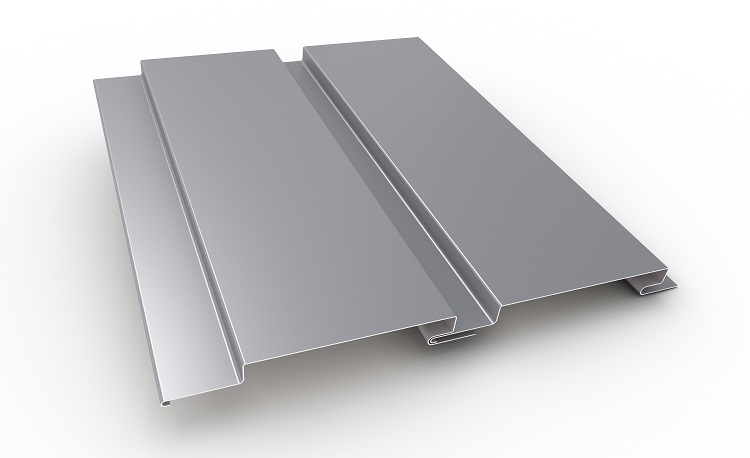
“The cantilevered bays needed to be light for structural reasons, and we wanted to maintain a contemporary feel to the design – metal siding was a natural choice,” Lange says of this decision. “If we employed the same forms, wrapped in more traditional siding or paneling, the final effect might not have been as strong. The contrast between the metal bays and traditional brick walls gives the project its rhythm and character.”
Among the highlights of the window bays is the way the panels wrap around the corners to create the crisp look PWWG’s designers intended. “The corner detail was absolutely critical to make this installation work – without it, the project’s main, contemporary character would have been compromised,” Lange says. “The corners make the project – they make a humble material special.”
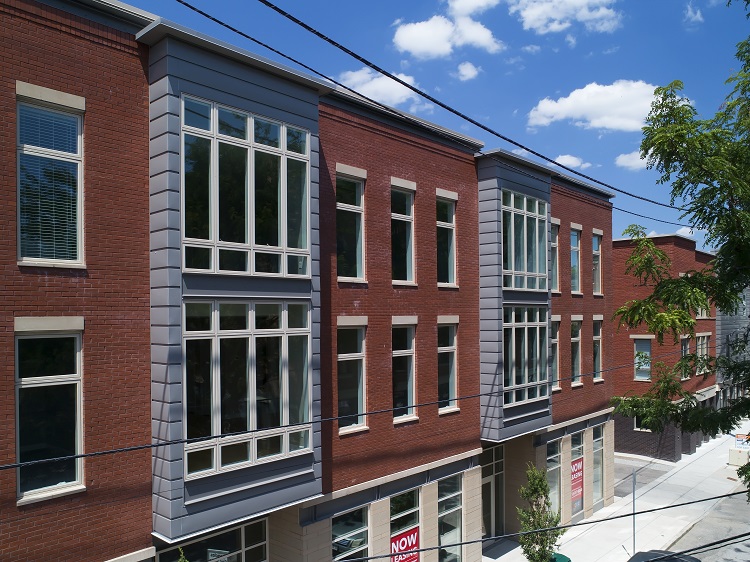
PAC-CLAD Flat Sheet Allows Installers to Reduce Costs by Forming Corners Onsite
Getting those corners to look as planned, though, took some doing. That’s where the skill of installers from the local firm of Deuss Enterprises came into play. These metalworking pros used Petersen’s flat sheet material to form the corners onsite. “To have them fabricated was very expensive,” says Blake Ross, the company’s director of construction, describing his crew’s efforts. “It wasn’t fun, but they turned out great.”
Ross says he counted on the assistance of Rick Carpenter, Petersen’s local architectural representative, throughout the installation. “If it weren’t for Rick, that job would not have gone nearly as successfully,” he says. “He was there at the end of that phone every time.”
The finished buildings have been very well received, with both residential and retail units filling quickly – and PWWG already has won a local Cincinnati AIA award for the project.
Photos: hortonphotoinc.com
Related Stories
| Feb 26, 2013
CRSI releases new technical note on stainless steel reinforcing bars
The Concrete Reinforcing Steel Institute (CRSI) has released a new technical note, Frequently Asked Questions (FAQ) about Stainless Steel Reinforcing Bars, to its online collection.
| Jun 1, 2012
New BD+C University Course on Insulated Metal Panels available
By completing this course, you earn 1.0 HSW/SD AIA Learning Units.
| May 29, 2012
Reconstruction Awards Entry Information
Download a PDF of the Entry Information at the bottom of this page.
| May 24, 2012
2012 Reconstruction Awards Entry Form
Download a PDF of the Entry Form at the bottom of this page.
| Mar 7, 2012
LEO A DALY selected to design Minnesota Fallen Firefighters Memorial
The bronze, figurative sculpture of a firefighter rescuing a child, which is currently on display at the Minneapolis/St. Paul International Airport, is lit by natural light through a circular void in the monolith.
| Jan 9, 2012
METALCON International 2012 announced
METALCON 2012 is scheduled for Oct. 9-11 at the Donald E Stephens Convention Center, Hall A, Rosemont, Ill.
| Oct 18, 2011
Michel Bruneau wins 2012 AISC T.R. Higgins Award
The AISC T.R. Higgins Lectureship Award is presented annually by the American Institute of Steel Construction (AISC) and recognizes an outstanding lecturer and author whose technical paper(s) are considered an outstanding contribution to the engineering literature on fabricated structural steel.
| Apr 12, 2011
Metal cladding: Enhancing design with single-skin panels, MCMs, and IMPs
Single-skin metal panels, metal composite panels, and insulated metal panels can add both aesthetic and functional value to your projects, if you use them correctly.
| Apr 5, 2011
SSPC, AISC announce joint standard for paint shop certification
SSPC: The Society for Protective Coatings and the American Institute of Steel Construction (AISC) are pleased to announce a joint certification standard for shop application of protective coatings. The standard, "Certification Standard for Shop Application of Complex Protective Coating Systems," describes requirements for certification of firms that shop apply complex painting systems.


